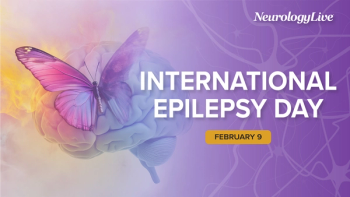
FDA Permits Marketing for Plaque-Detecting Diagnostic Test for Alzheimer Disease
Cerebrospinal fluid samples tested in a large cohort of patients at least 50 years of age with either mild cognitive impairment or Alzheimer disease showed high correlations between the Lumipulse G ß-Amyloid Ratio and PET status.
Fujirebio’s Lumipulse G ß-Amyloid Ratio (1-42/1-40) test, a diagnostic tool for early detection of amyloid plaques associated with Alzheimer disease (AD), has been awarded marketing by the FDA, according to an announcement. It was reviewed through the de novo premarket review pathway, a regulatory pathway for low- to moderate-risk devices of a new type.1
The test is intended to measure the ratio of ß-amyloid1-42 and ß-amyloid1-40 concentrations found in human cerebrospinal fluid (CSF) of adults aged 55 years and older, presenting with cognitive impairment who are being evaluated for AD and other causes of cognitive decline. A positive or negative test have been shown to be consistent with the presence of amyloid plaques, similar to a PET scan.
"The availability of an in vitro diagnostic test that can potentially eliminate the need for time-consuming and expensive PET scans is great news for individuals and families concerned with the possibility of an Alzheimer’s disease diagnosis,” Jeffrey Shuren, MD, JD, director, FDA’s Center for Devices and Radiological Health, said in a statement.1 "With the Lumipulse test, there is a new option that can typically be completed the same day and can give doctors the same information regarding brain amyloid status, without the radiation risk, to help determine if a patient’s cognitive impairment is due to Alzheimer’s disease."
Because there is a possibility that a positive result could be seen in patients with other types of neurologic conditions as well as cognitively healthy elders, the test is not intended as a screening or stand-alone diagnostic assay. The FDA noted that the results of the test should be interpreted in conjunction with other patient clinical information.
The Lumipulse test received breakthrough device designation in February 2019 and was further validated in a 2021 clinical study using Alzheimer’s Disease Neuroimaging Initiative (ADNI) CSF samples. The analysis included 274 individuals with either mild cognitive impairment (n = 170) or AD (n = 104) aged at least 50 years, 69% of whom were amyloid-PET positive. Positive and negative percent agreement (PPA and NPA) and Overall Percent Agreement (OPA) were calculated based on agreement with PET imaging results.2
Three independent neuroradiologists, blinded to all other clinical data, reviewed the scans and provided a visual interpretation according to FDA-approved labeling. At a set cutoff of 0.058, previously established in the Amsterdam Dementia Cohort, the Lumipulse test demonstrated a PPA and NPA of 86.3% (CI, 80.7%-90.5%), and 92.9% (CI, 85.5%-96.7%) respectively with an OPA of 88.3% (CI, 84.0%-91.6%).
Not only did the test strongly correlate with PET status, but the study authors noted that the "use of CSF ratio can reduce costs to patients and provide greater ease of access to testing. In conjunction with clinical assessment the Aß42/Aß40 ratio can serve as a highly effective biomarker to assess amyloid status."2
REFERENCES
1. FDA permits marketing for new test to improve diagnosis of Alzheimer’s disease. News release. FDA. May 4, 2022. Accessed May 4, 2022. https://www.fda.gov/news-events/press-announcements/fda-permits-marketing-new-test-improve-diagnosis-alzheimers-disease?utm_campaign=FDA+Permits+Marketing+for+New+Test+to+Improve+Diagnosis+of+Alzhe&utm_medium=email&utm_source=govdelivery
2. Esquivel RN, Benina N, Hawkins DM, et al. Clinical validation of the Lumipulse G ß-amyloid ratio (1-42/1-40) in a subset of ADNI CSF samples. Alzheim Demen. 2021;17(S5):e055657. doi:10.1002/alz.055657
Newsletter
Keep your finger on the pulse of neurology—subscribe to NeurologyLive for expert interviews, new data, and breakthrough treatment updates.










